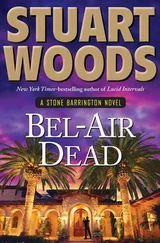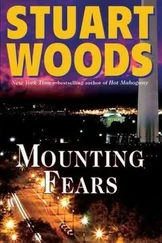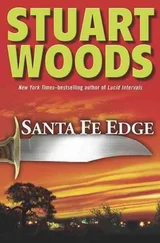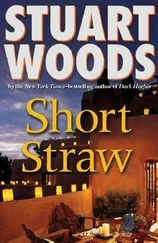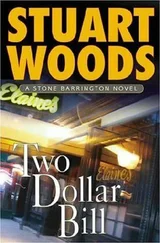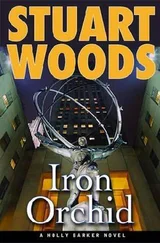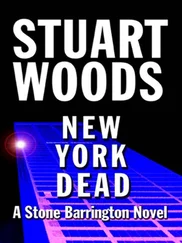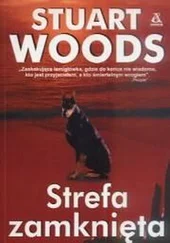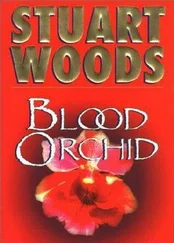“Thank you, ma’am,” Jimmy replied.
“You’re…” she consulted his application, “thirty-six years old, is that right?”
“That’s right.”
“We’ve never had a chief that young,” she said.
“I know,” Jimmy said, “but I do have twelve years on the job, and I would like to point out that all my experience has been in Orchid Beach, which I think gives me an advantage over applicants from other jurisdictions.”
“Good point,” Taggert said. “And we do have favorable recommendations from two past chiefs, Holly Barker and Hurd Wallace.”
“I appreciate those,” Jimmy said, “and I’m confident that the late Chief Marley, who originally hired me, would have recommended me if he could have.”
“Does anyone have any questions to ask the detective?” Taggert asked.
“Jimmy,” one of the men said, “how do you feel about the current staffing of the force?”
“Well, we’re short a deputy chief, and we should have one.”
“Do you know why Chief Bruno didn’t offer you the job?”
“He told me he was considering me and he thought I was qualified, but I had the impression he might have preferred to bring in someone he had known in the army.”
“If you’re promoted, is there anyone currently on the force that you’d promote to deputy chief?”
“No, I don’t think so. I’d hire from outside. However, I would promote someone from within to fill my detective’s slot.”
“I see. So all you’d need to hire would be a deputy chief?”
“For the moment,” Jimmy said. “I’d also continue to work cases as a detective. I don’t think there’s enough administrative work to take up all my time.”
“So we could decrease the departmental budget?”
“I’d rather you didn’t,” Jimmy replied. “I’d like to have the budget to hire another officer, should we need one.”
Jimmy was asked a few more questions, then thanked and dismissed.
“We’ll be in touch,” Irma Taggert said.
Jimmy left the room feeling that his interview had gone well.
On Saturday evening, Teddy was up to his ears in preparing dinner and, simultaneously, preparing himself for his third face-to-face meeting with Holly Barker. On the first occasion, he’d had a fine production of La Bohème to distract her from paying attention to him, and, moreover, he was heavily disguised. On the second occasion, on the island of St. Marks, he had gained twenty-five pounds and sported red hair and a thick moustache; now he had lost the twenty-five pounds and perhaps a bit more, which had the pleasing effect of making him look younger. His hair and wig were graying, but he was still passing for sixtyish. He was also more tanned, since he had been living on the beach for a while.
He seared a whole, well-seasoned tenderloin of beef in a large skillet while he spread a chicken liver and mushroom pâté over rolled-out puff pastry. When the tenderloin was thoroughly browned, he placed the pastry in a roasting pan, set the tenderloin on it and wrapped the pastry around it, pinching it decoratively at the top to hold it together and for an attractive presentation. He then set the pan in the oven.
He heard the driveway alarm go off and a minute later the screen door slam.
“Honey, I’m home!” Lauren shouted over the jazz playing on the living room stereo. “I brought my best china.”
She came into the kitchen and kissed him. “How’s it going?”
“I’m halfway through,” he said. “The roast is in the oven. That was the time-consuming part. Why don’t you set the table?”
“Will do,” she said. “My good crystal is in the car. I’ll go get it.”
Teddy put the vegetables on, then went into the bedroom and changed into a silk shirt and new trousers he had bought at the Ralph Lauren outlet store in Vero. He slipped on a new pair of alligator loafers that he had gotten on sale on the Internet, then he checked himself in the mirror. He was definitely not the man he had been when Holly last saw him, and, besides, he had been employing a soft, southern accent since his arrival in Vero Beach.
Teddy walked back into the living room and viewed the first place setting. “Great!” he said. “You brought linen napkins, too.”
“Oh, yes. My mother would have turned over in her grave if I’d put out the good china and crystal and not put out the linens.”
Teddy picked up a wine goblet. “Baccarat,” he said. “My favorite.”
“What do we have for wine?” Lauren asked.
“Two bottles of Far Niente chardonnay in the fridge and two of Far Niente cabernet for the main course on the sideboard, one breathing. They’re delicious, and they have the advantage of the world’s most beautiful labels.” He set the open bottle on the table, between the silver candlesticks she had brought.
“There,” she said. “Just perfect. Now I’ve got to go change.” She ran into the bedroom with a garment bag.
Teddy went back to the kitchen, just in time to turn off the vegetables. As he did, he heard the driveway alarm chime, so he took off his apron and went to the door, running through his mind the differences between his Jack voice, which was mostly his own, and the last voice Holly had heard him speak.
He opened the door and went out onto the porch just as Holly and her friend were getting out of a Mercedes. “Good evening,” he said, “I’m Jack Smithson.”
“I’m Josh Harmon,” the man said, extending a hand.
Holly came from around the car. “Hi, I’m Holly Barker,” she said, offering her hand.
“And I’m Jack Smithson,” Teddy replied, shaking it. “Come on in and let’s get a drink. Lauren is still dressing, as you might imagine.” He led them into the house. “What can I get you?” he asked.
“Knob Creek on the rocks,” Holly said, “if you have it. Not everybody does.”
“I have it,” Teddy said, scooping up some ice and pouring the drink.
“Scotch for me,” Josh said.
“I have Johnnie Walker Black or Laphroaig, a single malt.”
“Oh, the Laphroaig, that’s a real treat.”
Teddy poured Josh’s drink, and then one each for Lauren and himself. He carried her drink into the bedroom, zipped up her dress for her and handed her the drink. “They seem very nice,” he said.
She took a quick sip of her Scotch. “Well, get back in there and charm the socks off them.”
Teddy returned to the living room, seated them on the sofa and settled into a chair. “So, Josh, you’re an ER doctor at the Indian River Hospital?”
“That I am.”
“Sounds exciting.”
“Sometimes exciting, sometimes a little too exciting,” Josh replied.
“And Holly, you’re with the CIA?”
“That’s right.”
“In what capacity?”
“I’ve recently been appointed assistant deputy director of operations.”
“Operations, is that the analysis part or the spy part?”
“It’s the spy part,” she said.
“Sounds very mysterious. I won’t ask you a lot of questions about it, because I’m sure you won’t answer them. I would like to know if you enjoy your work, though.”
“More than anything I’ve ever done,” Holly answered.
“What did you do before you went to work for the CIA?”
“I was the police chief in Orchid Beach, and before that I was a career army officer, serving in the military police.”
“That’s quite a background,” Teddy said.
“What do you do?”
“I’m retired, now. I was a machinist and a mechanical engineer.”
“Where did you go to college? MIT, perhaps?”
Teddy laughed. “Oh, no. I apprenticed as a machinist, and I’m completely self-taught as an engineer.”
“Did you work for an engineering firm?”
Читать дальше

